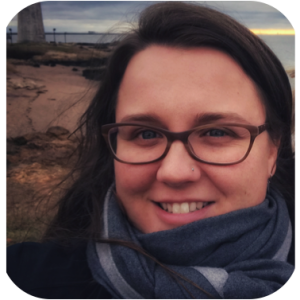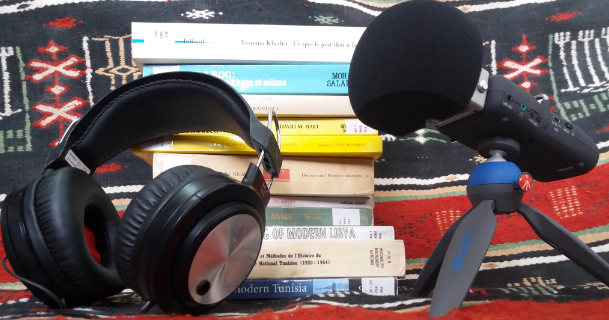Thursday Mar 04, 2021
Episode 112: Terra Incognita: Mapping the Afterlives of French Nuclear Imperialism in the Sahara
How can aesthetic works and humanities training help us to apprehend the danger that nuclear toxicity poses to ecological health and human life?
Taking off from the premise that French maps of the Sahara Desert have long served to enable military occupation and violent erasure, this podcasts explores how aesthetic works such as film and photography can act as countercartographies that push back against the dangerous idea of the desert as empty space.
Beginning in 1960, the French military carries out seventeen nuclear bomb detonations at two secret bases they built for this purpose in the Algerian Sahara. The desert sites near Reggane and In Ekker were selected for their supposed remoteness and emptiness – according to the French state, for purposes of safety, cleanliness, and containment. Of course, the Sahara is anything but empty, and these deadly bombs were anything but safe, clean, or contained. The term 'afterlife' recognizes that nuclear imperialism is not a past problem, but a present and future one.
In this talk, Dr. Jill Jarvis, Assistant Professor in the Department of French at Yale University, discusses maps and images taken in and around the village of Mertoutek, whose residents were in the direct path of radioactive cloud released during the underground detonation of the bomb named 'Béryl' at nearby In Ekker in 1962. A striking document of this disaster and its enduring impact is the short documentary film At(h)ome, by Elisabeth Leuvrey, inspired by landscape photographs taken of the site by Bruno Hadjih. Leuvrey's and Hadjih's works combine image and sound to chart an archival blank zone where old taboos on naming French colonial violence intersect with present state secrets. As it stands, aesthetic works – photography, film, poetry, narrative, song – might be among the forms best attuned to register this toxic afterlife, and to train us to recognize and reckon with nuclear imperialism much differently than do our governments and legal systems.
This episode is part of “Health and Humanities in the Maghrib” a lecture series by the American Institute for Maghrib Studies (AIMS), organized by the Centre d'Études Maghrébines à Tunis (CEMAT) and the Centre d'Études Maghrébines en Algérie (CEMA), in close collaboration with the Tangier American Legation Institute for Moroccan Studies (TALIM). It was recorded on the 19th of November 2020 between Oran, New Haven (CT), Ithaca (NY) and Tunis. Dr. Samia Henni, Assistant Professor in the Department of Architecture at Cornell University, moderated the lecture and debate.
Posted by: Hayet Lansari, Librarian, Outreach Coordinator, Content Curator (CEMA).



No comments yet. Be the first to say something!